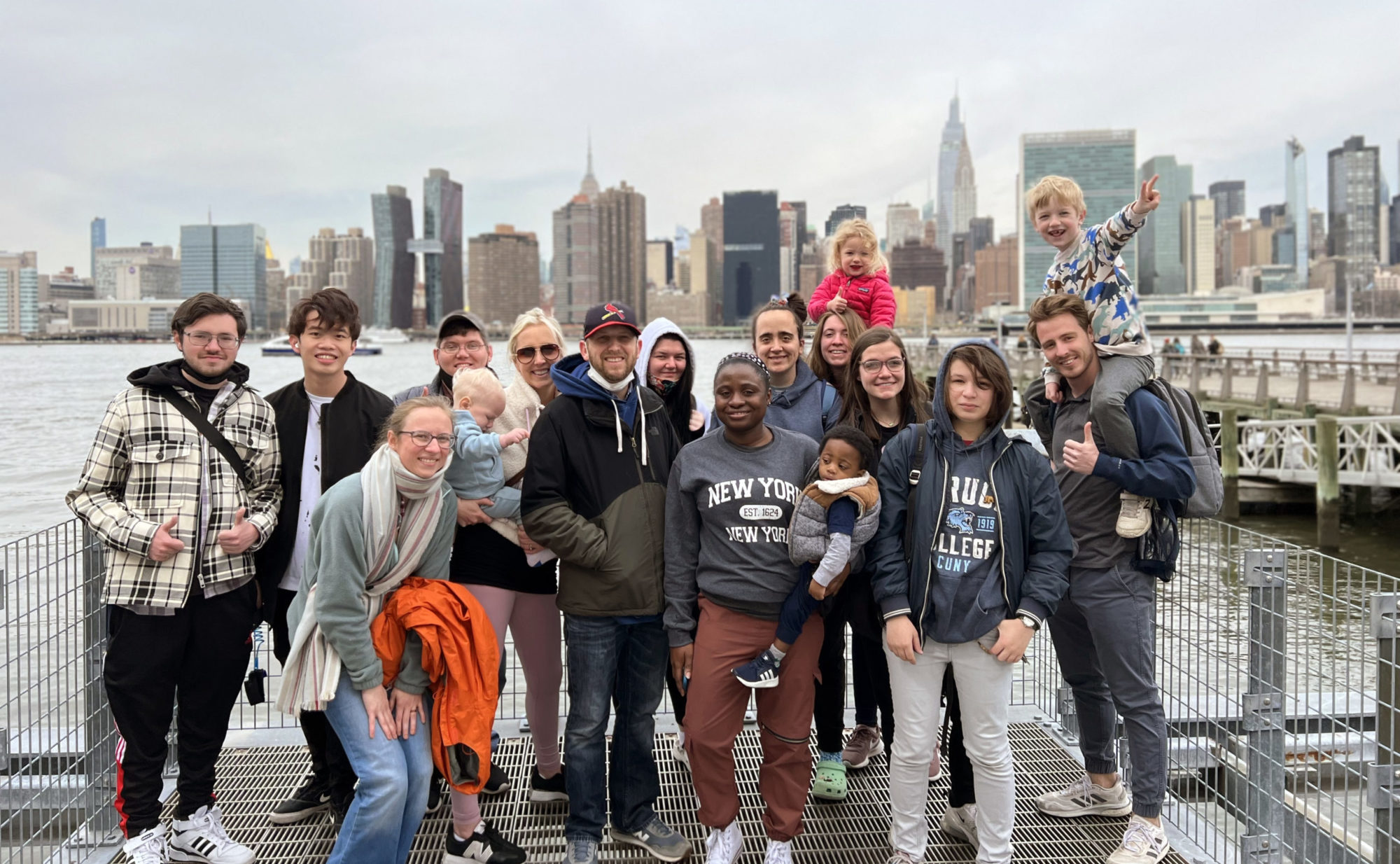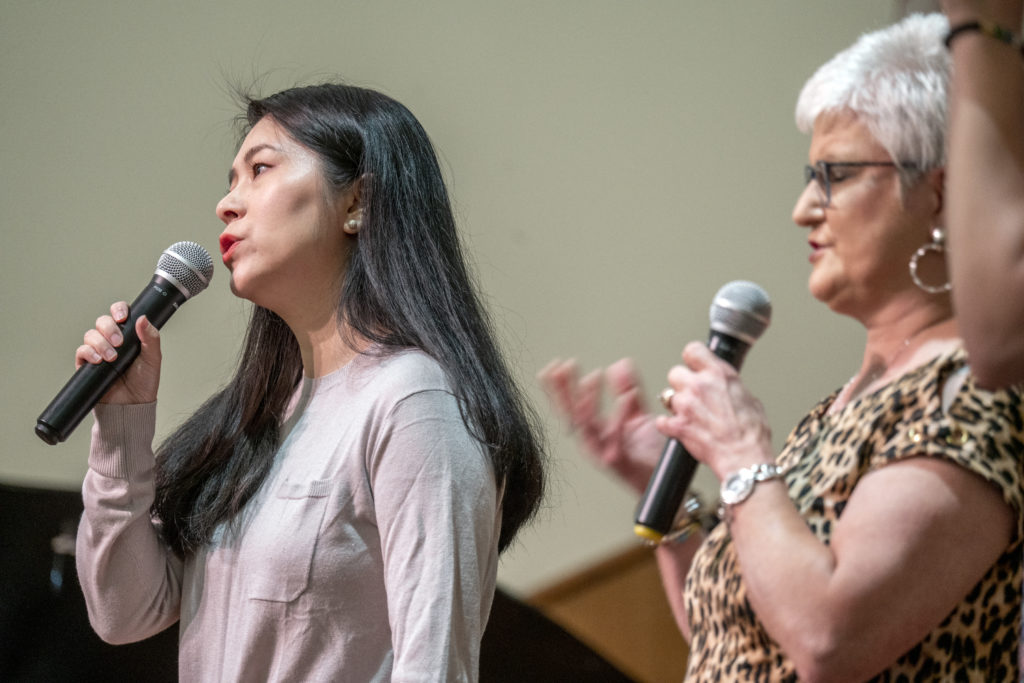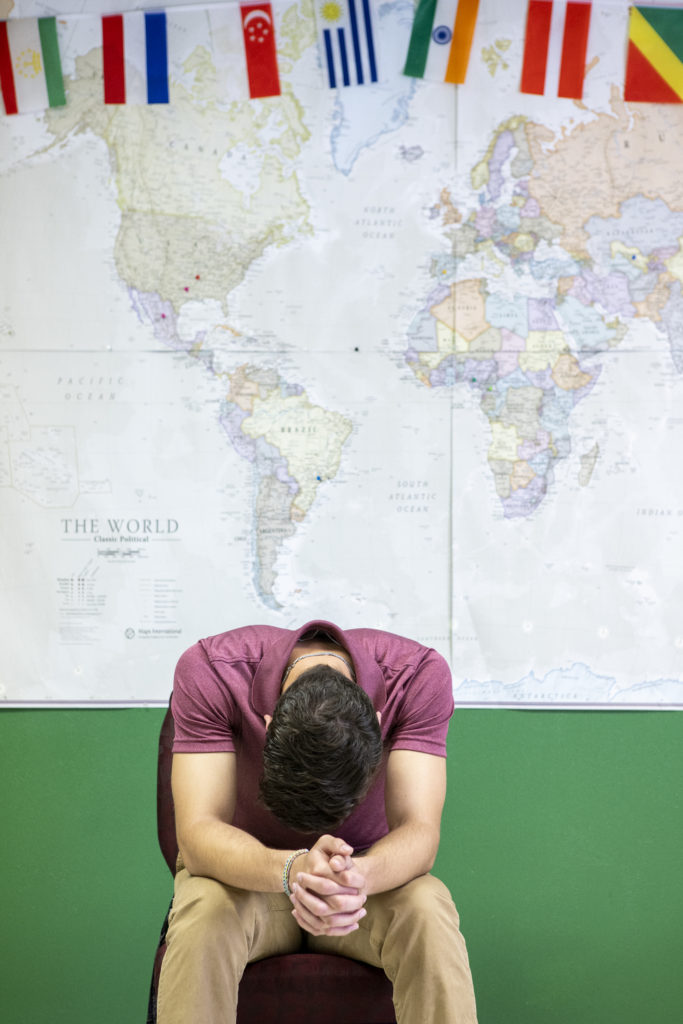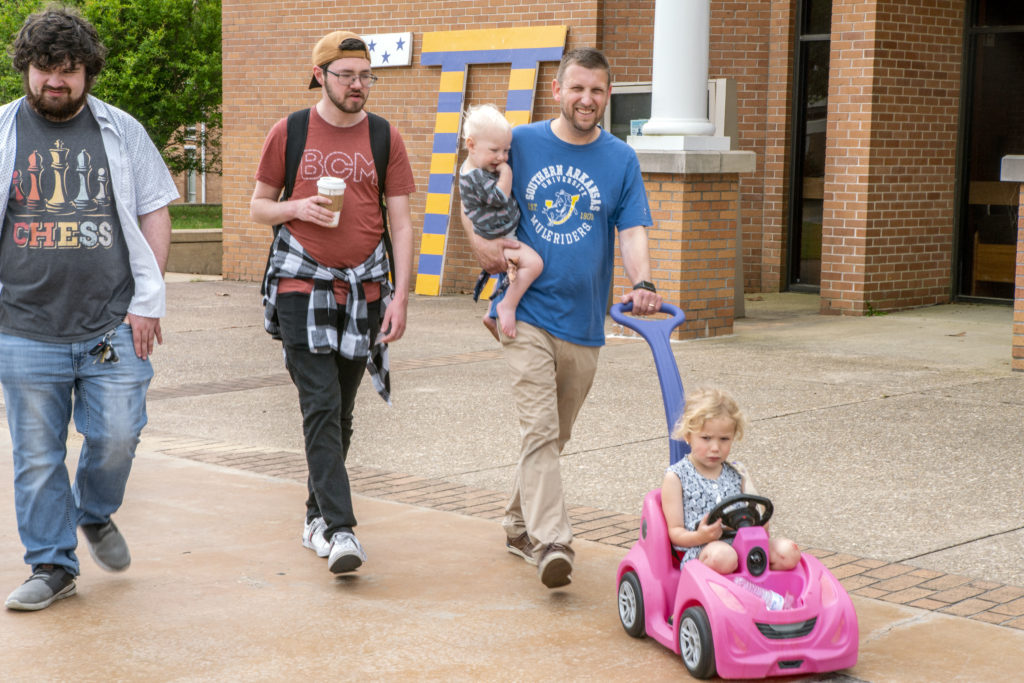Everyone bustled around the neighborhood. Horns blared trying to push traffic along. Mothers pulled their children to school along the sidewalk. Old men sat in groups, drinking coffee and loudly discussing last night’s game. It was a typical city scene in the United States except here, few spoke English.
The mission team from Immanuel Baptist Church, Magnolia, Arkansas, expected things in Brooklyn, New York, to be different from their small southern Arkansas town. Nothing, however, prepared them for culture shock once they surfaced from the subway into this Brighton Beach community known as “Little Odessa” — the U.S. hub for Central Asian immigrants. Signs were in Russian Cyrillic script. The food looked and smelled different.
It was as if they had just entered another country.

Immanuel Baptist Church mission trip to New York City. This Arkansas church sits a couple miles from the Southern Arkansas University campus. As the church reached out to college students and professors, they began to feel a call for the nations. They ended up adopting two diaspora groups - Mandarin speakers and Uzbeks - based on this interaction. IMB Photo
Ben Coulter breathed in the unfamiliar spices from food stalls and broke out in a wide grin. The pastor watched the mission team made up of college students and families from his church mingle along the boardwalk and beach. Their goal was to meet people from Uzbekistan and provide gospel access that knows no geographic or social boundary. This is diaspora missions at its core.
Diaspora means the movement, migration, settlement or scattering of people away from their indigenous homeland. Within this Brighton Beach community there are immigrants from Turkey, Russia, Georgia, Uzbekistan, Azerbaijan and Ukraine. Reaching internationals like these who have never heard the good news was exactly what Coulter envisioned when Immanuel adopted the Uzbeks as their people group. More than 100,000 Uzbeks live in the United States, with close to 28,000 in Brooklyn and less than five in Magnolia, Arkansas.
“What started out as reaching an Uzbek student in our backyard, turned into a burden for an entire nation,” Coulter explained.
How it started

Alex Pokusaey gives a high five to James Coulter after a tennis lesson. IMB Photo
When Alex Pokusaev wandered into Immanuel Baptist a few years ago, most of the church members had never even heard of Uzbekistan. The Southern Arkansas University student was 7,000 miles away from home and curious about everything.
“I didn’t grow up with any beliefs,” Pokusaev said, noting that he was baptized in the Russian Orthodox church by his father while his mother was a nominal Muslim. “When Ben (Coulter) and my roommate invited me to church, I thought, ‘Why not try something new?’”
The Uzbek student asked anyone in the congregation who stopped to chat about the Bible. The gospel message was a concept he’d never heard before and he wanted to understand.
Coulter knew to really reach out to this student, he needed to talk to someone with experience in ministering to ethnic Russians. He made a call to Jamie Naramore, the cross-cultural strategist for Arkansas Baptist State Convention. It wasn’t the first such call the southern Arkansas pastor has made. The Coulter family and others at Immanuel regularly play host to international students and faculty at SAU from 30 different countries. The church is also home for nine different nationalities. The pastor learned early on that there was no reason to “reinvent the ministry wheel” when there are others around the world who can train and mentor them on what to do.
Many state Baptist conventions, like Arkansas, partner with the International Mission Board and North American Mission Board to reach diaspora people groups within the United States. The Diaspora Mission Collective also includes Send Relief, Woman’s Missionary Union, SBC executive committee, seminaries and local associations. Terry Sharp, IMB’s director of convention relations and diaspora mobilization, helps to facilitate the collaboration, training and sharing of resources.
“God’s been sending us the nations. So, we try to meet them right here in the United States,” Sharp said. “It might be the only time they hear the gospel message. They could be the ones to take it back home to places missionaries cannot go.”

Caroline Chen, assistant professor of accounting at Southern Arkansas University, sings a song about the Great Commission with the worship team. The college professor came to Christ years ago in her home country through missionaries sharing with her. She’s now a big advocate at Immanuel Baptist Church in Magnolia, Arkansas, for reaching the nations in their town. More than 30 countries are represented at the nearby university. IMB Photo
Sharp pointed out social media allows the estimated 45 million internationals and immigrants in the United States to be in touch with family back home. Pokusaev didn’t have to travel to Uzbekistan to provide an avenue for gospel access. As he made the decision to follow Christ, he relayed the information to his mother via social media and FaceTime.
The church prayed for his mother’s salvation and in the process, developed an even bigger heart for Uzbeks. Eventually, she too became a follower of Jesus and plugged into a local church. While they celebrated this answered prayer, their hearts broke when Pokusaev asked, “What happens to those who have never heard of Jesus?”
Reaching the nations
The question that haunted the college student spurred the church to action. With less than 1% of Uzbeks claiming Jesus as their Savior, Immanuel Baptist committed to working with them in Arkansas. But they wanted more.

The college Sunday school class is where the love of internationals began for members of Immanuel Baptist Church, Magnolia, Arkansas. IMB Photo
“God gave us a heart for Uzbekistan. Alex (Pokusaev) had been in the United States for multiple years. No one ever sat down and explained the gospel to him before coming here,” Coulter said. “Our church realized God was bringing unreached people groups to us…not just Arkansas but the United States.
“We couldn’t stop asking ourselves how many Uzbeks didn’t know Jesus,” he continued. “We needed to do something about it.”
It felt natural for the small church to take a mission team to the USA hub for Central Asians in Brooklyn. Because of Pokusaev, the church was already trained in engaging Uzbeks. Their passion for reaching this people group only grew stronger with each experience and person they met.
Walking along Brighton Beach with the mission team, Rebecca Castro saw hopelessness in the eyes of the elderly sitting along the boardwalk. She couldn’t speak to them due to the language barrier, but she could love and pray for them. This was the first step in building relationships within the community for the next team to build on.
The experience reminded her of a tug to international missions as a teen. In the years since, she never felt God calling her to move to another country or even to stop pursuing her engineering career. Now, looking into these eyes, she realized this was her calling — reaching the nations that come to us.
“It’s not about one person or even one church doing it all. It’s all of us working together and glorifying God,” Castro said. “When we are a part of that, the Holy Spirit moves and big things happen.”

Ben Coulter is a constant walking around Southern Arkansas University. The pastor of Immanuel Baptist Church in Magnolia, Arkansas, spends time on campus talking to students, faculty and staff. He disciples many of the college students that attend his church to reach the nations with the gospel. The church is engaging the Uzbek diaspora. IMB Photo
God’s impact among the diaspora will be featured in this year’s Week of Prayer for International Missions, observed Dec. 4-11, 2022. Visit imb.org/lottiemoon/ for downloadable Week of Prayer and Lottie Moon offering resources.

